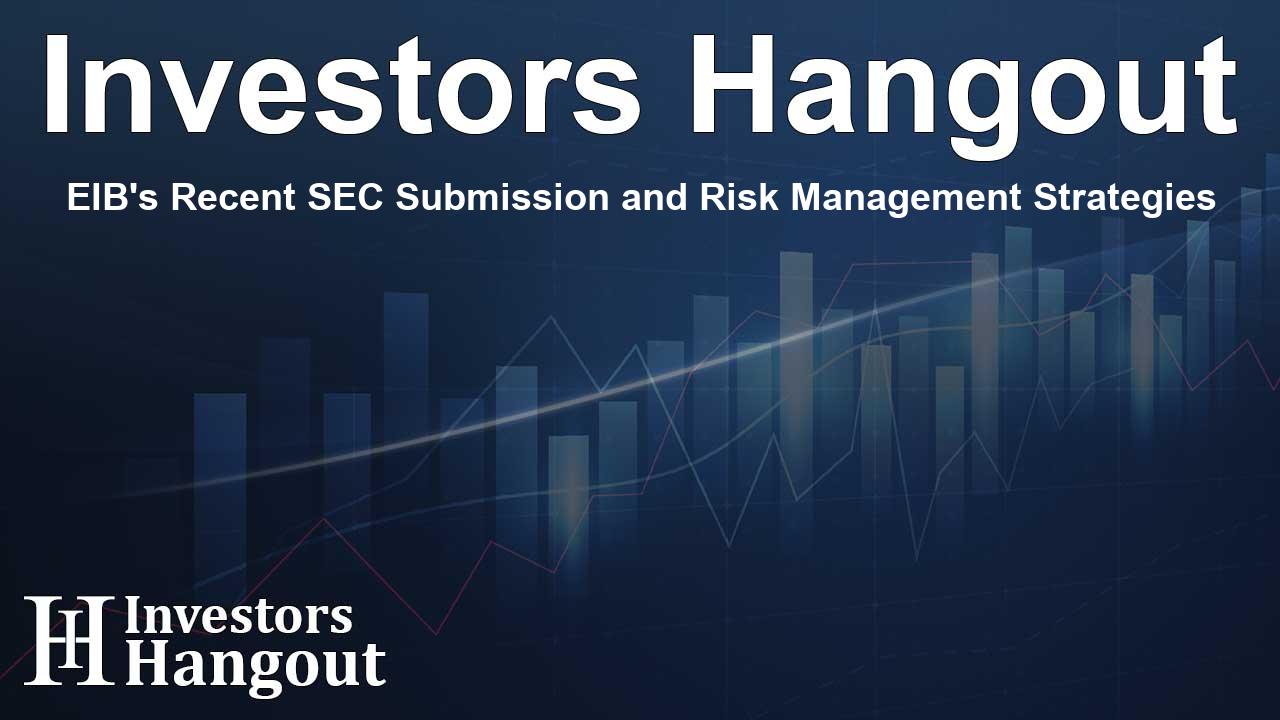EIB's Recent SEC Submission and Risk Management Strategies

Understanding EIB's Latest SEC Submission
The European Investment Bank (EIB) has taken a significant step by submitting SEC Form 18-K/A Amendment No. 3, indicating its ongoing commitment to transparency and regulatory compliance. This document represents an important aspect of the EIB's mission to manage risks effectively and communicate its financial health to stakeholders.
Key Highlights of the Amendment
This amendment is not just a regulatory requirement; it also provides valuable insights into the bank's risk management practices. By making this submission, the EIB reiterates its dedication to maintaining high standards in governance and financial reporting. This is particularly crucial in environments with fluctuating market conditions where robust risk management is vital.
What Is SEC Form 18-K/A?
SEC Form 18-K/A is primarily used by foreign governments and agencies, allowing them to file amendments to previously submitted reports. For EIB, this means updating stakeholders on any significant changes in its operational or financial position, thus ensuring that potential investors have access to the latest information.
Implications for Investors
For investors evaluating opportunities within European financial institutions, an amendment like this serves as a foundational tool for due diligence. The disclosures provided in the document can reveal critical insights related to financial stability, risk exposures, and overall market strategy. EIB's practice of such transparency can be a strong indicator of its reliability as an investment potential.
The Impact of EIB's Risk Management Strategies
As part of their comprehensive financial strategy, EIB has a proactive approach towards risk management. This includes identifying potential risks related to economic conditions, credit quality, and operational performance. The relevance of such strategic planning cannot be overstated, especially when navigating the current economic landscape.
Strategic Focus Areas
The EIB focuses on several key areas: examining credit risk, market fluctuations, and operational risks. By diversifying their portfolio and implementing stringent controls, they aim to safeguard investor interests while contributing to the stability of the financial ecosystem. Such measures not only protect the bank’s assets but also fortify investor confidence.
Continuous Improvement
In light of evolving market dynamics, EIB is committed to continuous improvement in its risk management processes. This involves frequent assessments and adjustments to their strategies, ensuring that they are not only compliant with regulations but also ahead of potential market shifts. Such foresight can significantly mitigate risks associated with investments.
Accessing the Amendment and Further Information
For those interested in the detailed report, it is accessible on the EIB website along with other pertinent documents showcasing the bank’s commitment to transparency and strategic financial governance. This accessibility allows stakeholders to delve deeper into the specifics of their financial health and risk management approaches.
Staying Informed
Investors and stakeholders are encouraged to stay informed about the EIB’s activities and submissions. Regular updates and disclosures not only enhance transparency but also facilitate a better understanding of the bank's performance and future directions. By doing so, they can make well-informed decisions based on real-time data and strategic insights.
Conclusion
In conclusion, the EIB's submission of SEC Form 18-K/A Amendment No. 3 is a crucial element in understanding its financial strategy and risk management. By prioritizing transparency and establishing robust risk management frameworks, the bank positions itself as a reliable partner in the financial landscape. Investors can certainly look at this as an opportunity to engage with a institution that values accountability and continuous growth.
Frequently Asked Questions
What is SEC Form 18-K/A?
SEC Form 18-K/A is an amendment that foreign entities must submit to update previously filed reports to ensure accurate and current financial information.
What does EIB do?
The European Investment Bank provides financing and expertise for sustainable investment projects, focusing on various sectors to promote economic growth and environmental sustainability.
Why is risk management important for banks?
Risk management is essential for banks to identify, assess, and mitigate financial risks, ensuring stability and protection for both the institution and its investors.
How can investors benefit from EIB’s transparency?
Investors benefit from transparency as it allows them to make informed decisions based on the bank's financial health and risk exposure, promoting confidence in their investments.
Where can I find EIB’s financial reports?
EIB’s financial reports and submissions can be found on its official website, providing stakeholders with access to detailed and current financial information.
About The Author
Contact Riley Hayes privately here. Or send an email with ATTN: Riley Hayes as the subject to contact@investorshangout.com.
About Investors Hangout
Investors Hangout is a leading online stock forum for financial discussion and learning, offering a wide range of free tools and resources. It draws in traders of all levels, who exchange market knowledge, investigate trading tactics, and keep an eye on industry developments in real time. Featuring financial articles, stock message boards, quotes, charts, company profiles, and live news updates. Through cooperative learning and a wealth of informational resources, it helps users from novices creating their first portfolios to experts honing their techniques. Join Investors Hangout today: https://investorshangout.com/
The content of this article is based on factual, publicly available information and does not represent legal, financial, or investment advice. Investors Hangout does not offer financial advice, and the author is not a licensed financial advisor. Consult a qualified advisor before making any financial or investment decisions based on this article. This article should not be considered advice to purchase, sell, or hold any securities or other investments. If any of the material provided here is inaccurate, please contact us for corrections.
